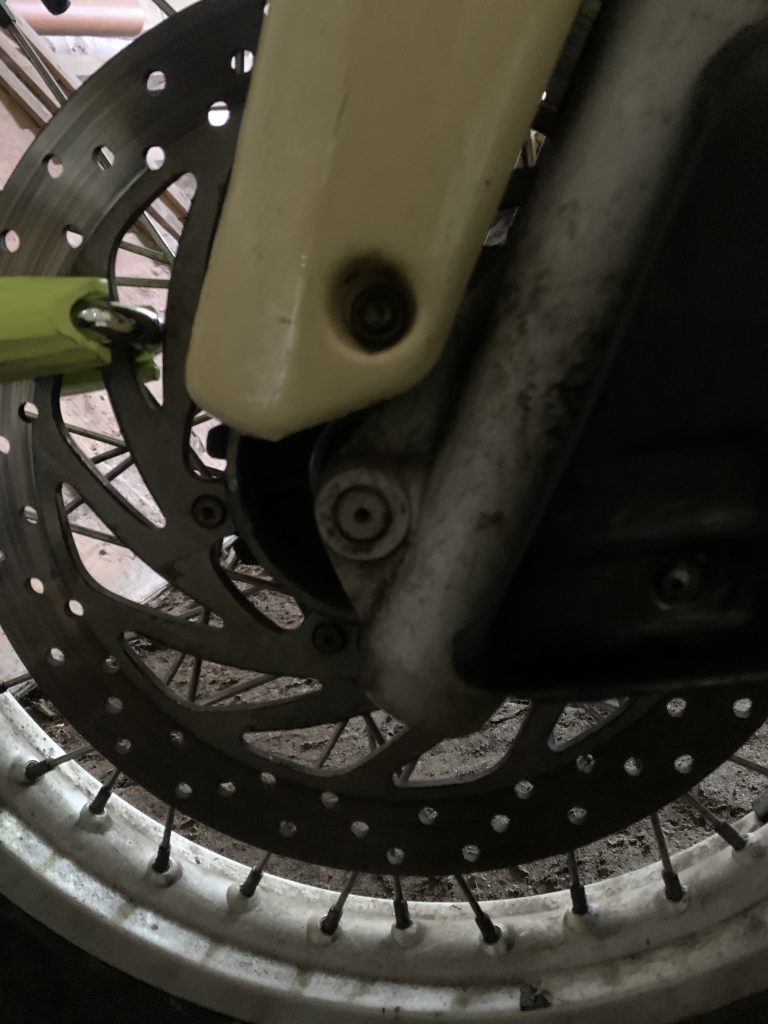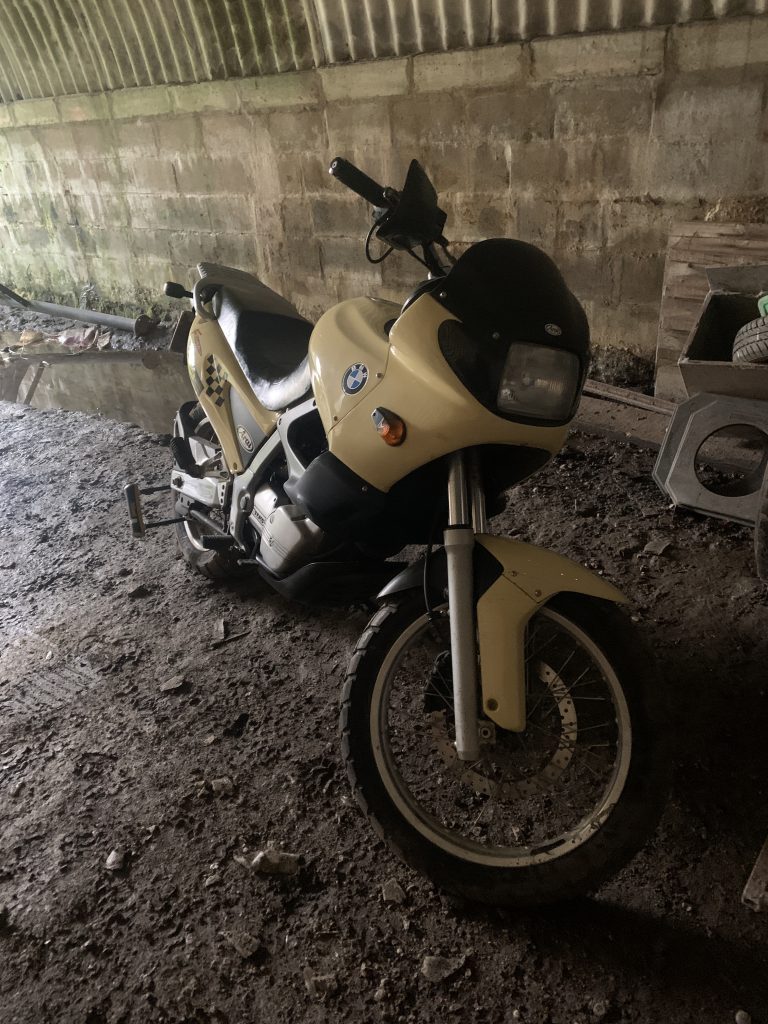A few weeks ago I had an email from a half-sister I didn’t know I had. I always knew there was a lot that hadn’t been said about my parents’ split and divorce, but I didn’t know what. It hadn’t been said.
I’m slowly, very slowly, establishing what did and didn’t happen, before my father managed to create yet more self-centred attention-seeking mayhem, even after he was dead, crashing his car into two parked vehicles after his massive heart attack. Which is what you can expect when you’re at least four stone overweight for years, fervently believe that exercise means smoking a packet of Players every day, running at least two households and an enormous Pyrenean Mountain dog in the belief that Dulux will get tired of their Old English Sheepdog and make your fortune, get made bankrupt, get a suspended prison sentence and get divorced by the third of four definite wives, but only the second legal one. That I know about, anyway. Half-sister and I suspect that 14 years was far too long a time for my father not to be married, the time between her mother’s marriage to the man calling himself Anthony John Richard Bennett, despite his birth certificate never having had a trace of Anthony anywhere on it, nor the 1939 or any previous Census using that name.
What we do know is that having got married at 23, RAF Aircraftsman “Anthony” married my half-sister’s mother during the war. After demobilisation, they moved to Kent, specifically to St Mary Cray, which has its own confusion of sometimes being called Orpington and sometimes not, during the throes of the twentieth century. He installed himself and his new bride in his mother’s presumably rented house, where he had lived since before the war, along with a young teenage cousin and his mother. Quite how in 1939 a 19-year-old paint sprayer supported the three of them isn’t clear.
After beating the new wife up several times, perfectly audibly to the daughter, my half-sister, my father waited until wife and daughter had left the house, then literally disappeared. When the wife and daughter got back to the house, it was empty. Of everything. Anthony, his aged and apparently unpleasant mother and every stick of furniture had gone, never to be seen again. By wife and daugher, at least. Obviously the two of them never saw any maintainance money from him either.
This year I finally found the bogus Anthony’s wartime records, documenting his meteoric rise through from the most junior rank in the Royal Air Force to the second most junior rank, albeit only meteoric in the sense that it burned out quickly. Evan at six years old I wondered how anyone could be the pilot he obliquely claimed to be with eyesight like his, which I’ve inherited. It isn’t great, although with age I’m much better at spotting Fokkers and other people like him at a distance.
There on the record was the first clue that Something Definitely Wasn’t Right. The Name of Spouse and Date Of Marriage sections of the record had a thick black line through them. GDPR and all that. I can’t know their names because I’m no relation to them. Hmm. A mystery, but one I thought I had no way of solving. Three days after posting the RAF record on Ancestry.com, I got an email. From the half-sister I didn’t know I had. Her mystery was finally solved. All it took to hide in an era when your records were typed onto a piece of cardboard and indexed in a filing cabinet was to change or add your first name. How is anyone going to check, unless they physically go to the place the record is kept? And unless they already have a suspicion that Name X has an awful lot in common with Name Y?
Anthony John Richard Bennett, having dropped the Anthony alias by now, married my mother in 1957. He’s now a lathe operator, presumably a skill he picked up when he wasn’t peeling potatoes on a bleak RAF Colerne or spiking unpopular officers’ tea with washing-up liquid to give them the runs. Unfortunately, he’d somehow neglected to bother to get a divorce from the first wife, presumably on the basis that doing so would establish his address. She eventually got one in 1961. Marriage number two, the 1957 one to my mother, was therefore bigamous. So far as I’ve been able to discover, the police didn’t bother to do anything about this when the fact was discovered, 11 years later.
Now a buyer, then a travelling salesperson, then something to do with 3M and Plessey and BTM Industries, then an international jet-setting businessman with urgent business in New York, or as it actually turned out, setting-up a second home with the Jaguar-driving primary teacher the Herbert Detective Agency in Burton-on-Trent described as “a much younger blond woman”, John Bennett was by 1968 carting around not just the blond totty in a Jag but a stolid and enormous Pyrenean Mountain dog called Wendy.
Blond! In her own Jag! No wonder! When I was teaching I met several distinctly stupid and criminal kids who genuinely seemed to think that there was no possibility that anyone was more intelligent or more perceptive than they were. I don’t know whether my father was like that, although I suspect he was. That, or he was deliberately trying to get caught. We never, ever had a phone in the house, an odd omission for an international jet setter with urgent business in New York and London, or Burton-On-Trent, as it turned out. He appeared one night with a brand new Braun record player, at a time when many adults shared deeply antagonistic memories of the application of German technology. He brought records too. Des O’Connor singing “I’ll pretend.” Matt Monroe singing “Softly As I Leave You.” Nobody had recorded a song called “Taking The Piss” or “Begging For It.”
Diana Coldwell, a Yorkshire-born, London-based primary school teacher whose income limited her to a council house in Burton-On-Trent but also seemed to be able to stretch to a two-year-old Jaguar Mk11, was taller and younger and not as dim as my father had hoped. She visited our house in Wiltshire and established that the man she married in 1968 on the Isle of Wight (but how? She didn’t live there…) also had a house in Wiltshire, inhabited by a wife and three children, one of them me.

The big clue that Something Was Up was noticed by our next door neighbour. The Pyrenean Mountain dog (think Belle and Sebastian, but not the ’90s band) was in the back of the Jag. Between my mother’s Burton on Trent gumshoes (the surprisingly-named Herbert Detective Agency) and the un-dim fury of Diana Coldwell, who did not take at all kindly to having her telephone ripped out, my father got himself made bankrupt, thrown out by both women, his house in Wiltshire threatened with re-possession, enjoyed being given a suspended prison sentence for no-payment of child maintainance, lost what looks like a very good job and decamped to Hampshire before marrying yet again shortly before worn out by his exertions, his heart, like to many people he had met, had had enough of him.
I couldn’t sleep last night. Around 3 a.m., I came up with the idea of cataloguing the legal papers I recovered from my mother’s estate dating back to 1969. It was a different world, one of moon landings and Vietnam, just a year after the last mainline steam engine ran. Photographing and setting up a spreadsheet today, I hadn’t realised how much paper there was, but I think this is the best way. I remember being told of a car accident in which my father had, or said he had, banged his head and this was to be medically assessed, but Diana Coldwell, Wife Number 3 (that we know of, half-sister and I), as well as Legal Wife Number 2 felt that this might not be true.
I’m meeting my half-sister in September. One of the things I want to know is whether she ever had a brother, then or now. I don’t think she did. But my mother told me I have a half-brother. There is no trace of him in any of the legal papers, the petitions, the Herbert Detective Agency reports, or solicitors’ letters. Who he is, or where he was, or even whose he was, is still a mystery.












